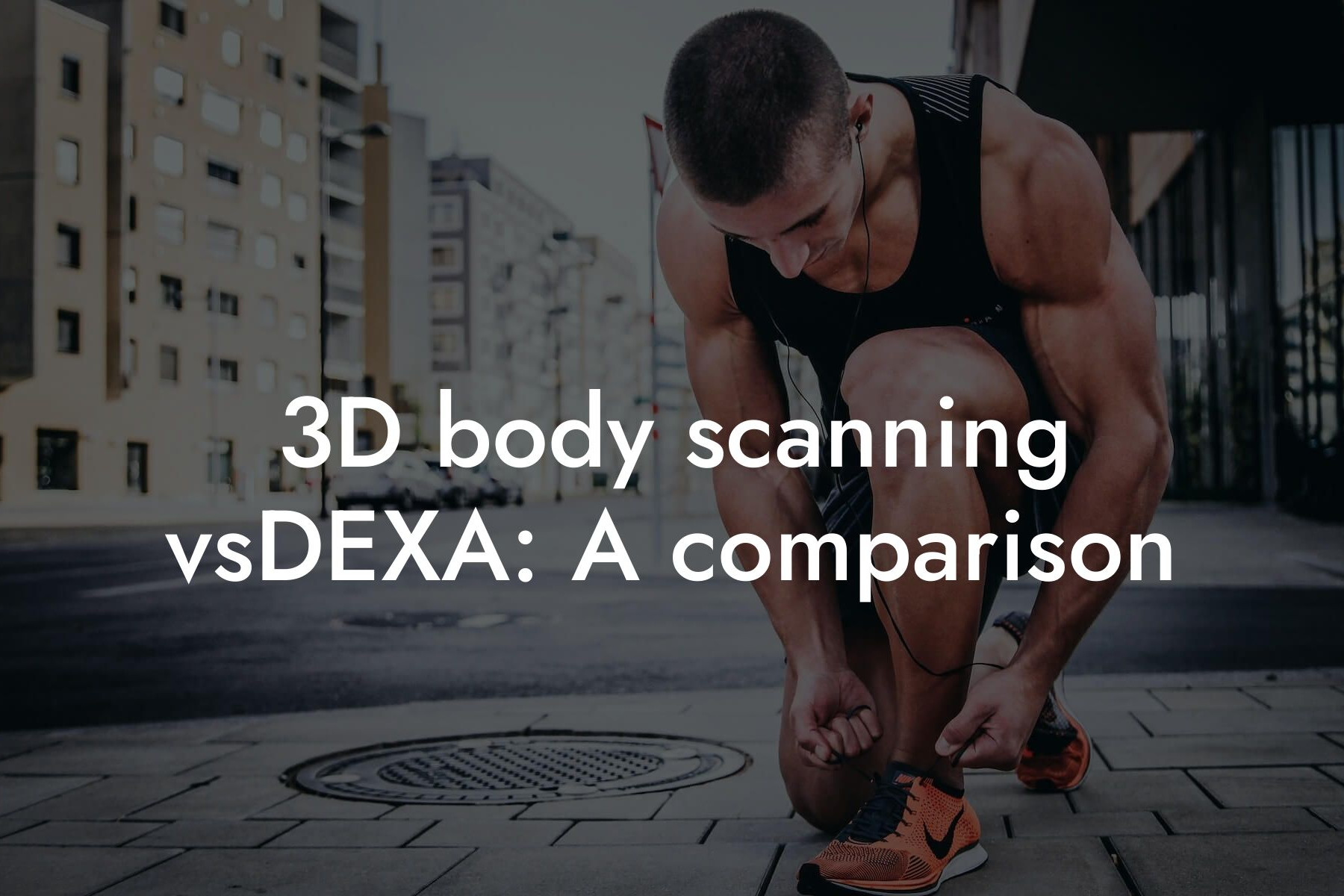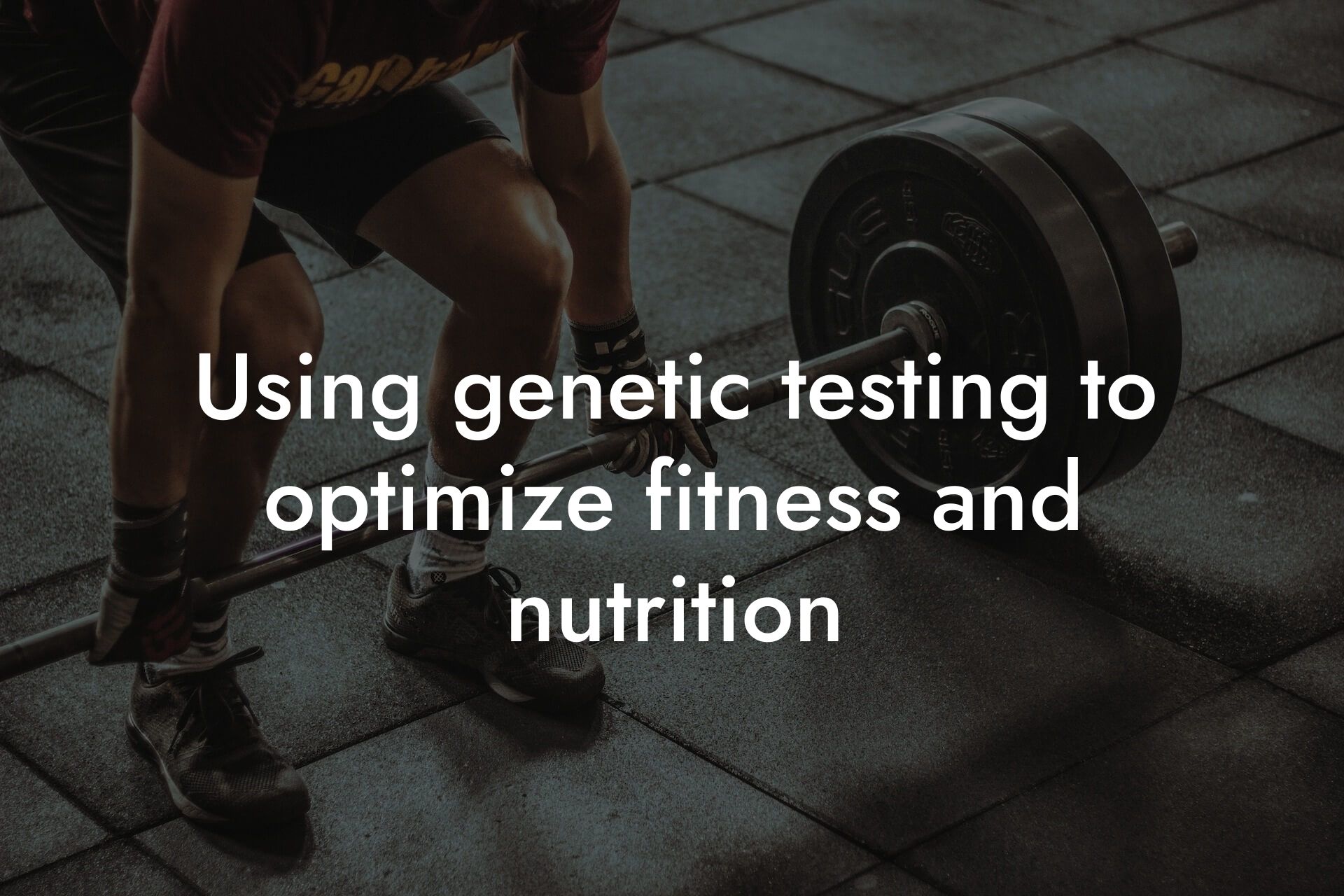As high-earning professionals, taking care of your physical appearance and overall health is crucial for maintaining energy levels, confidence, and a competitive edge in your industry. At Tano Performance Group, we understand the importance of tracking fitness progress to achieve your goals. In this article, we'll explore the best gadgets for tracking fitness progress, helping you make informed decisions about your health and wellness journey.
Table of Contents
Why Track Fitness Progress?
Tracking fitness progress is essential for several reasons. Firstly, it helps you set realistic goals and monitor your progress, providing motivation and accountability. Secondly, it allows you to identify areas for improvement, making adjustments to your workout routine and nutrition plan accordingly. Finally, tracking fitness progress helps you celebrate your achievements, reinforcing positive habits and behaviors.
Types of Fitness Trackers
There are various types of fitness trackers available, each serving a specific purpose. Some popular options include:
-
Wearable devices (e.g., smartwatches, fitness trackers)
-
Mobile apps (e.g., MyFitnessPal, Strava)
-
Body fat analyzers (e.g., DEXA scans, bioelectrical impedance analysis)
-
Heart rate monitors (e.g., chest straps, smartwatches)
-
GPS tracking devices (e.g., running watches, cycling computers)
Top Fitness Trackers for High-Earning Professionals
Based on our expertise and customer feedback, here are some top fitness trackers for high-earning professionals:
-
Garmin Forerunner 945: A high-end GPS running watch with advanced features like performance monitoring, music storage, and contactless payments.
-
Fitness trackers like Fitbit Charge or Apple Watch Series 7, which offer a range of features like heart rate monitoring, sleep tracking, and guided workouts.
-
DEXA scans, like those offered at Tano Performance Group, providing a comprehensive body assessment and detailed metrics on body fat, bone density, and muscle mass.
-
Mobile apps like MyFitnessPal, which allows you to track your nutrition and macronutrient intake, set goals, and monitor progress.
Features to Consider When Choosing a Fitness Tracker
When selecting a fitness tracker, consider the following features:
-
Accuracy and reliability: Look for devices with high-accuracy sensors and reliable data tracking.
-
Customization: Choose a tracker that allows you to set personalized goals, track specific metrics, and receive tailored feedback.
-
Ease of use: Opt for a user-friendly interface and a device that integrates seamlessly with your lifestyle.
-
Additional features: Consider devices with features like GPS tracking, heart rate monitoring, or guided workouts.
How to Use Fitness Trackers Effectively
To get the most out of your fitness tracker, follow these tips:
-
Set specific, measurable, and achievable goals.
-
Track your progress consistently, using your device regularly.
-
Analyze your data, identifying areas for improvement and adjusting your routine accordingly.
-
Stay motivated by celebrating small victories and sharing your progress with friends or a fitness community.
Tracking fitness progress is a crucial aspect of achieving your health and wellness goals. By understanding the different types of fitness trackers available and choosing the right device for your needs, you'll be better equipped to monitor your progress, make informed decisions, and celebrate your successes. At Tano Performance Group, we're committed to providing high-earning professionals with the tools and expertise needed to take their fitness journey to the next level. Contact us to learn more about our DEXA scan services and how we can help you achieve your goals.
Final Thoughts
Remember, tracking fitness progress is not just about the numbers; it's about developing a deeper understanding of your body, making sustainable lifestyle changes, and achieving a better work-life balance. By incorporating fitness tracking into your daily routine, you'll be more focused, more confident, and more prepared to tackle the demands of your high-stress profession.
Frequently Asked Questions
What are the benefits of tracking fitness progress?
Tracking fitness progress is essential to achieving your physical goals. It allows you to monitor your progress, stay motivated, and make informed decisions about your workout routine and nutrition plan. By tracking your progress, you can identify what's working and what's not, making adjustments to optimize your results. Moreover, seeing your progress can boost your confidence and motivation, helping you to stay committed to your fitness journey.
What types of gadgets are available for tracking fitness progress?
There are various types of gadgets available for tracking fitness progress, including fitness trackers, smartwatches, heart rate monitors, GPS trackers, and body fat analyzers. Each type of gadget has its unique features and benefits, and the right one for you will depend on your specific fitness goals and needs.
What features should I look for in a fitness tracker?
When choosing a fitness tracker, consider the following features: step tracking, distance tracking, calorie burn tracking, heart rate monitoring, GPS tracking, and sleep tracking. Additionally, look for a tracker that is water-resistant, has a user-friendly interface, and is compatible with your smartphone.
How accurate are fitness trackers?
Fitness trackers can be accurate, but their accuracy may vary depending on the brand, model, and features. Generally, fitness trackers are most accurate when it comes to tracking steps, distance, and heart rate. However, they may be less accurate when it comes to tracking calories burned or sleep quality. It's essential to choose a reputable brand and model, and to understand the limitations of your tracker.
Can I use a fitness tracker for high-intensity workouts?
Yes, many fitness trackers are designed to withstand high-intensity workouts. Look for a tracker that is water-resistant and has features such as GPS tracking, heart rate monitoring, and acceleration tracking. These features will help you track your progress and performance during high-intensity workouts.
How do I choose the right fitness tracker for my needs?
To choose the right fitness tracker, consider your fitness goals, budget, and personal preferences. Research different brands and models, read reviews, and compare features. Consider factors such as accuracy, durability, and user-friendliness. It's also essential to consider the compatibility of the tracker with your smartphone and any other devices you plan to use.
What is the importance of heart rate monitoring in fitness tracking?
Heart rate monitoring is a crucial feature in fitness tracking as it allows you to track your physical exertion and optimize your workouts. By monitoring your heart rate, you can ensure that you're working out at the right intensity, reducing the risk of injury or burnout. Additionally, heart rate monitoring can help you track your progress and adjust your workout routine accordingly.
How do I track my body fat percentage?
There are several ways to track your body fat percentage, including using a body fat scale, skinfold calipers, or a DEXA scan. A body fat scale is a convenient and affordable option that uses bioelectrical impedance analysis (BIA) to estimate your body fat percentage. Skinfeld calipers are a more accurate method that involves measuring the thickness of your skin folds at specific points on your body. A DEXA scan is a medical-grade method that uses X-rays to measure your body composition.
What is the ideal body fat percentage for men and women?
The ideal body fat percentage varies depending on age, gender, and fitness goals. For men, a healthy body fat percentage ranges from 8-19%, while for women, it ranges from 21-33%. However, athletes or individuals with specific fitness goals may require a lower body fat percentage. It's essential to consult with a healthcare professional or registered dietitian to determine your ideal body fat percentage.
How often should I track my fitness progress?
It's recommended to track your fitness progress regularly, ideally once a week. This will help you stay motivated, identify patterns, and make adjustments to your workout routine and nutrition plan. However, it's essential to avoid obsessive tracking, as this can lead to burnout and decreased motivation.
What are the benefits of tracking sleep quality?
Tracking sleep quality is essential for overall health and fitness. During sleep, your body repairs and rebuilds muscle tissue, consolidates memories, and regulates hormones. Poor sleep quality can lead to fatigue, decreased performance, and increased risk of chronic diseases. By tracking sleep quality, you can identify patterns, make adjustments to your sleep habits, and optimize your overall health and fitness.
How do I track my sleep quality?
There are several ways to track sleep quality, including using a fitness tracker, smartwatch, or sleep tracker. These devices use accelerometers and other sensors to track your sleep patterns, including duration, quality, and stages of sleep. You can also use sleep apps or maintain a sleep diary to track your sleep quality.
What is the importance of tracking nutrition in fitness progress?
Tracking nutrition is crucial in fitness progress as it allows you to optimize your diet and support your fitness goals. By tracking your nutrition, you can ensure that you're consuming the right amount of macronutrients, micronutrients, and calories to support muscle growth, recovery, and weight loss.
How do I track my nutrition?
There are several ways to track nutrition, including using a food diary, nutrition app, or meal planning service. A food diary allows you to record your daily food intake, while a nutrition app provides a database of foods and their nutritional values. A meal planning service provides personalized meal plans based on your fitness goals and dietary needs.
What are the benefits of tracking bone density?
Tracking bone density is essential for overall health, particularly for individuals at risk of osteoporosis or osteopenia. By tracking bone density, you can identify any changes or abnormalities, and take preventative measures to maintain strong bones. This is particularly important for athletes or individuals who engage in high-impact activities.
How do I track my bone density?
There are several ways to track bone density, including using a DEXA scan or a bone density analyzer. A DEXA scan is a medical-grade method that uses X-rays to measure bone density, while a bone density analyzer uses ultrasound or other technologies to estimate bone density.
What are the benefits of using a fitness tracker with GPS?
Using a fitness tracker with GPS provides accurate distance and pace tracking, making it ideal for runners, cyclists, and triathletes. GPS tracking also allows you to track your route, identify patterns, and optimize your training.
How do I choose the right GPS tracker for my needs?
To choose the right GPS tracker, consider your fitness goals, budget, and personal preferences. Research different brands and models, read reviews, and compare features. Consider factors such as accuracy, battery life, and user-friendliness. It's also essential to consider the compatibility of the tracker with your smartphone and any other devices you plan to use.
What are the benefits of tracking progress photos?
Tracking progress photos provides a visual representation of your progress, helping you to stay motivated and see the changes in your body. Progress photos can also help you identify areas for improvement and track changes in body composition.
How often should I take progress photos?
It's recommended to take progress photos once a week, ideally at the same time and in the same pose. This will help you track your progress and identify any changes in your body composition.
What are the benefits of tracking workout routines?
Tracking workout routines helps you stay organized, motivated, and accountable. By tracking your workouts, you can identify patterns, make adjustments, and optimize your training. Additionally, tracking workout routines helps you to avoid plateaus and prevent overtraining.
How do I track my workout routines?
There are several ways to track workout routines, including using a workout log, fitness app, or personal trainer. A workout log allows you to record your workouts, including exercises, sets, reps, and weight. A fitness app provides a database of exercises and allows you to track your progress, while a personal trainer provides personalized guidance and feedback.
What are the benefits of tracking fitness progress with a community?
Tracking fitness progress with a community provides accountability, motivation, and support. By sharing your progress with others, you can stay motivated, learn from others, and get feedback and guidance. Additionally, tracking fitness progress with a community helps you to stay connected and engaged, reducing the risk of burnout and dropout.
How do I find a fitness community to track my progress with?
There are several ways to find a fitness community, including joining a gym, fitness studio, or online fitness group. You can also participate in fitness challenges, join a fitness forum, or connect with like-minded individuals on social media. Look for a community that aligns with your fitness goals and values, and provides support and motivation.
Here are some related articles you might love...
- The role of AI in personalized fitness plans
- 3D body scanning vs DEXA: A comparison
- Using genetic testing to optimize fitness and nutrition
- Using apps to monitor body fat and muscle mass
- How wearable technology can track body composition changes
- The rise of telemedicine in body composition analysis
- Virtual fitness coaching: How effective is it?
- How to integrate technology into your fitness routine
- The future of DEXA scan technology
Zak Faulkner
Zak Faulkner is a leading authority in the realm of physical health and body composition analysis, with over 15 years of experience helping professionals optimise their fitness and well-being. As one the experts behind Tano Performance Group, Zak has dedicated his career to providing in-depth, science-backed insights that empower clients to elevate their physical performance and overall health.
With extensive knowledge of DEXA technology, Zak specializes in delivering comprehensive body assessments that offer precise data on body fat, muscle mass, bone density, and overall physique. His expertise enables individuals to make informed decisions and achieve their fitness goals with accuracy and confidence. Zak’s approach is rooted in a deep understanding of human physiology, combined with a passion for helping clients unlock their full potential through personalised strategies.
Over the years, Zak has earned a reputation for his commitment to excellence, precision, and client-focused service. His guidance is trusted by top professionals who demand the best when it comes to their health. Whether advising on fitness programs, nutritional strategies, or long-term wellness plans, Zak Faulkner’s insights are a valuable resource for anyone serious about taking their health and fitness to the next level.
At Tano Performance Group, Zak continues to lead our Content Team revolutionising how professionals approach their physical health, offering unparalleled expertise that drives real results.




